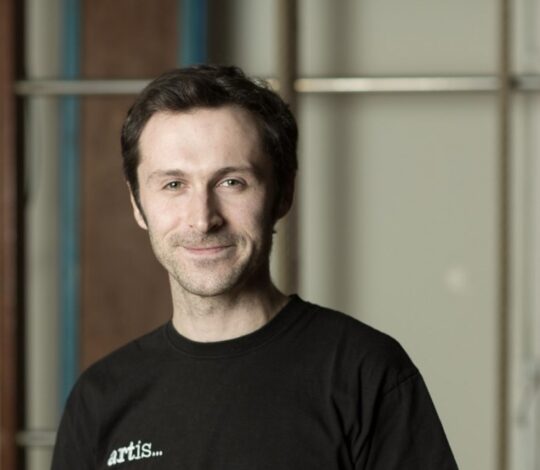Chime’s Artis story

Chime’s Artis story
Stuart (Chime) has been an Artis Specialist for over 12 years. He was in our second ever cohort of Specialists, and has since been a Mentor and a Mentor Leader. We asked Stuart about his time with Artis, and his career as an artist and an arts educator.
How did you begin your career as a performing artist?
My training is in both music and theatre, and when I graduated I was heavily involved in playing, recording and writing for a band I was part of. Alongside this, I decided to actively seek work in theatre and performing arts education. Artis was among the very first companies I worked for, when I was just starting out.
How did you find out about Artis and what was your experience starting out through recruitment and training?
I think I just saw an advert for Artis and decided to apply. This was WAY back in 2005 so my memory is a little fuzzy! I had done a bit of education work at Hampstead Theatre, but I was fairly inexperienced at that point. The recruitment was very thorough, including interviews, a performance, and finally, 10 minutes with a class of children. I was pretty nervous about the last bit, and lucky I was given a very polite, well-behaved class to work with! By the end of the process I was desperate to work for Artis because the ethos and values were (and are!) very strong and that inspired me.
As a 23 year-old with little experience of performing arts education, I was pretty blown away by the training. It was my first exposure to the possibilities of facilitation; using activities both for their learning potential and as management tools, and teaching holistically across disciplines. It was a lot to take on, and it took me a while to find my feet when I started in school.
What is the most helpful way Artis has helped you in your career?
The training and mentoring I received from Artis has hugely benefitted my career as an education practitioner. When you work for lots of different organisations, you take your experiences with you into different contexts, and they all become mutually beneficial. I strongly feel I’m a better teacher/facilitator because I also write music and make theatre productions; similarly, my experience as a facilitator is very useful in the rehearsal room. Because Artis was one of my earliest experiences, it was massively formative for me in shaping my values in performing arts education.
What do you think have been the most important /pivotal events or moments which established you as a successful Artis Specialist?
What helped me as an Artis Specialist was that I did a lot of work in my first year. I taught 4.5 days a week for Artis, so I built up a lot of experience quite quickly! If you do that amount of work and you have a bad session, there’s another one round the corner for you to correct your mistakes; there’s a healthy balance between good experiences and not so good ones! I was also playing gigs in the evenings and recording at weekends so I didn’t have time to dwell on anything!
Do you have any particular ambitions for the future?
I’ve been lucky to have worked abroad in South Korea with Artis, leading creativity training for teachers, which I absolutely loved doing. I would like to do more work abroad in other contexts. My theatre company TOOT have toured three shows in the UK now, and we would love to take our work abroad. Similarly, I do a lot of youth theatre work with The Unicorn Theatre and New Wimbledon Theatre, and the prospect of mounting productions with young people abroad would be an amazing experience for me, and the students I work with. I think you learn a lot about your work when you take it to a different cultural context.
Anything else you would like to say about your career development.
When you have a portfolio of things you do professionally, there’s less of a traditional, linear career progression. It’s more like an endless process of spreading outwards as well as forwards! Progress is a little harder to quantify in that context – but I’ve found the unexpected nature of it all exciting – even when it’s a bit nerve-wracking at times. I think I’d find it hard to just have one job after 12 years being a polymath!

